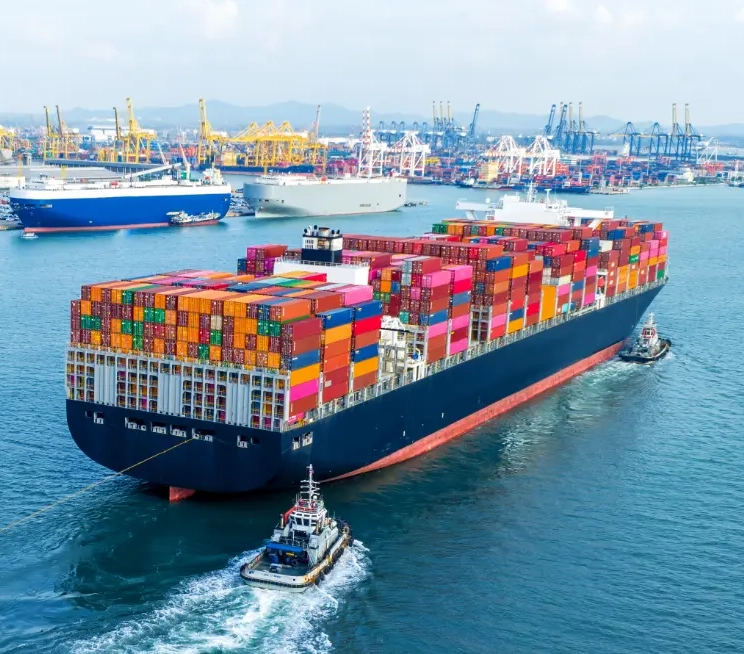In the vast and interconnected world of international trade, the movement of goods across borders is a daily occurrence. Whether it’s raw materials, finished products, or consumer goods, these items must meet specific quality, safety, and regulatory standards before they can be traded.
This is where commodity inspection becomes a crucial component of the shipping process. Understanding what commodity inspection is and how it impacts shipping can help businesses navigate the complexities of global trade more effectively.

What is Commodity Inspection?
Commodity inspection is a process that involves the examination and verification of goods before they are shipped from one country to another. The primary purpose of this inspection is to ensure that the goods meet the quality, safety, and regulatory standards required by both the exporting and importing countries.
Commodity inspections are typically carried out by specialized agencies, which can include government bodies, independent third-party inspection companies, or even representatives from the buyer’s side.
The scope of the inspection can vary depending on the type of goods being shipped, the requirements of the importing country, and any specific standards set by the buyer.
Key Aspects of Commodity Inspection
Key aspects of commodity inspection include:
1. Quality Assurance:
Inspectors check that the goods conform to the quality standards agreed upon in the purchase contract. This could involve checking the materials, workmanship, and overall condition of the products.
2. Safety Compliance:
The inspection process also ensures that the goods are safe for use or consumption. This is particularly important for products like food, pharmaceuticals, and consumer electronics, where safety issues can have serious consequences.
3. Regulatory Adherence:
Inspectors verify that the goods comply with the legal and regulatory requirements of the importing country. This could include checking for compliance with environmental regulations, labeling standards, or customs requirements.
How Does Commodity Inspection Impact Shipping?
The impact of commodity inspection on shipping can be significant, influencing everything from delivery timelines to overall costs. Here are some of the key ways in which commodity inspection affects the shipping process:
1. Potential Delays in Shipping:
One of the most immediate impacts of commodity inspection is the potential for delays.If goods fail to meet the required standards during inspection, they may need to be reworked, replaced, or even completely rejected.
This can lead to significant delays, as the shipment cannot proceed until the issues are resolved. In a global supply chain where timing is critical, such delays can have a ripple effect, disrupting schedules and leading to missed deadlines.
2. Increased Costs:
The inspection process itself incurs costs, which can include fees for the inspectors, testing services, and any necessary rework of the goods. If inspection issues delay a shipment, you may incur additional costs for storage, demurrage (fees charged when a shipment is delayed at the port), and expedited shipping to make up for lost time.
Furthermore, the costs associated with reworking or replacing goods that fail inspection can be substantial, especially if the issues are widespread.
3. Risk Mitigation and Quality Control:
On the positive side, commodity inspection serves as a critical tool for risk mitigation. By identifying potential issues before goods are shipped, inspections help prevent the distribution of defective, unsafe, or non-compliant products.
This can save businesses from the far more significant costs of product recalls, legal liabilities, and damage to brand reputation. In essence, the cost of inspection often assures that the goods being shipped meet all necessary standards.
4. Impact on Trade Relationships:
Consistent compliance with inspection standards can help build and maintain strong trade relationships. When buyers receive goods that consistently meet quality and regulatory standards, it fosters trust and can lead to long-term partnerships.
Conversely, repeated inspection failures can strain relationships, lead to stricter scrutiny of future shipments, and even result in the loss of business.
5. Regulatory Compliance and Market Access:
In some cases, compliance with commodity inspection standards is a prerequisite for market access. For example, certain countries have stringent regulations regarding the import of specific products, and failure to comply with these regulations can result in goods being denied entry.
By ensuring that goods pass inspection, businesses can avoid such scenarios and ensure smooth entry into their target markets.
Final Thought
Commodity inspection is an essential step in the international shipping process that ensures goods meet the necessary quality, safety, and regulatory standards. While it can introduce challenges such as delays and increased costs, it also offers significant benefits in terms of risk mitigation, quality control, and the maintenance of strong trade relationships.
For businesses engaged in global trade, understanding and effectively managing the commodity inspection process is key to ensuring that their shipments arrive on time, within budget, and in compliance with all relevant standards.
By doing so, they can navigate the complexities of international shipping with greater confidence and success.
At Eleevate Logistics, we understand the importance of smooth and compliant shipping operations.
Let us help you navigate the complexities of commodity inspection and ensure that your goods reach their destination safely and on time.
Contact us today to learn how we can support your global trade needs and keep your business moving forward with confidence.


